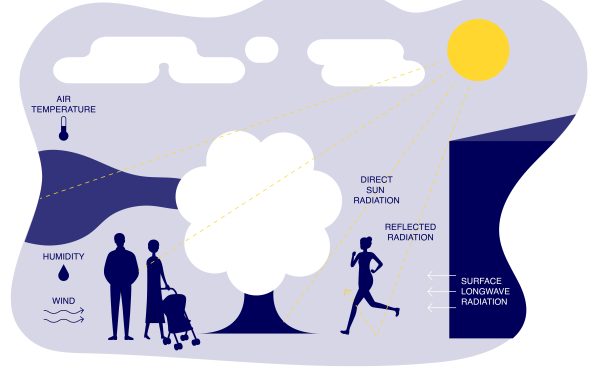By Alexandra Flynn
Spacing
In an echo of President Donald Trump’s policy-by-twitter, MP Kellie Leitch has turned her attention to sanctuary cities. In a March 9, 2017 tweet, the Conservative leadership candidate wrote, “One law for all is a Canadian value. `Sanctuary cities’ will be ineligible for transit funding if I am PM.”
Sadly, for Leitch, her position is doomed to fail.
If Ms. Leitch is looking to the U.S. as a positive case study, she won’t find much to support her position. Washington can’t order municipalities to spend their own money to deliver federal programs. In the U.S., in fact, there are hundreds of sanctuary cities. Each is guided by its own legislation. But in most cases, the aim is financial: cities have passed these policies so their police services aren’t required to do another government’s work. Put another way, American municipalities don’t want to provide a federal service without receiving any payment for it.
Sadly for Trump, courts have come down on the side of U.S. cities. A Supreme Court decision has restricted any conditions on federal funding to the purposes that such funding is provided. Unless the court decides otherwise, Trump will have trouble forcing sanctuary cities to enforce immigration laws by threatening to take away federal funding.
Canadian cities aren’t worried about this dynamic anyway. The country’s five (and growing) sanctuary cities – Toronto, Hamilton, London, Montreal and Vancouver – weren’t created to prevent the use of their funds to deliver another government’s services.
Instead, these municipalities have adopted this status to create inclusionary urban policies and services for the 500,000 non-status migrants who live below the radar in Canada — working, raising families and paying taxes. City staff “don’t ask” a person’s immigration status before providing service and “don’t tell” if they find out. Sanctuary city policies mean that residents can sign their children up for swimming lessons or buy parking permits without fearing that they will be turned over to border enforcement officials.
In his public statement made on January 31, 2017, Mayor John Tory said that “Toronto has also affirmed itself as a Sanctuary City, with a formal policy allowing all residents of Toronto to access City services without fear arising from a lack of documentation, so that everyone can be kept healthy and safe.”
So far, Canada’s sanctuary cities are doing exactly what they are authorized to do. Under the Constitution, municipalities are “creatures” of the province. While they don’t have the power to make decisions that fall within the jurisdiction of federal or provincial governments, most big cities have broad powers to pass by-laws that affect the health and safety of their residents.
Non-status residents have unique and serious health issues that are exacerbated by a constant risk of deportation. These fears reduce the likelihood that non-status people will access the very services they need, like education, shelter, and labour protection, further exacerbating their marginalization.
If anything, Canada’s sanctuary cities should do more. After a year-long review of the City of Toronto’s policies, a Ryerson University report found that many municipal staff aren’t aware of sanctuary city policies and better integration should take place across the organization’s many departments, especially Toronto Police Services. As the report noted, “Already vulnerable to abuse, non-status victims and witnesses cannot report crimes to police due to fear of deportation, which dissuades many from seeking police assistance.”
It’s hard to imagine a court asking cash-strapped cities to refund desperately-needed transit funding for introducing a policy they are legally empowered to approve – and which protects their most marginalized residents.
The next time Ms. Leitch decides to take on Canada’s big cities, she might want to read the Constitution, not Trump’s tweets.
Alexandra Flynn is an Assistant Professor at the University of Toronto (Scarborough) where teaches and writes on urban governance. Read more about sanctuary cities here. Follow her on twitter at @alexandraeflynn.




One comment
Let’s make sure to encourage people to come to Canada illegally. If we actually made people respect our laws we would only get those who wait years and years and earn the privilege to be here. It’s ridiculous to think that Canadian taxpayers shouldn’t be forced at gunpoint to pay for illegals. Canadian taxpayers are so entitled, thinking the money they earn belongs to them SHAME.
We should make sure that if two people are dying in a Canadian hospital the taxpayer is second to be treated – illegals should always be first. People freely donating to charity is not enough we need to garnish wages!
It makes me sick how people think Canada has the right to chose who comes into the country, pffft. If any Americans or any foreigners want to come use up all our stuff, it is their right as a human to take it all.